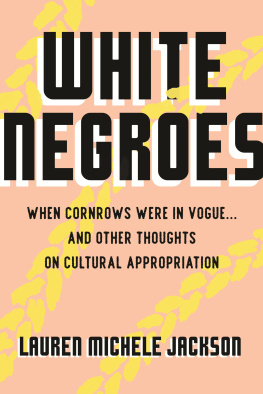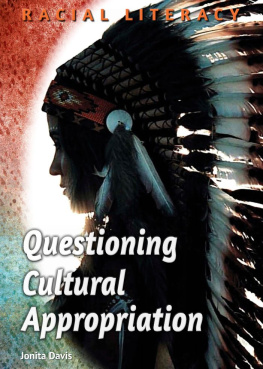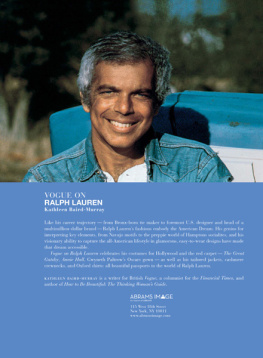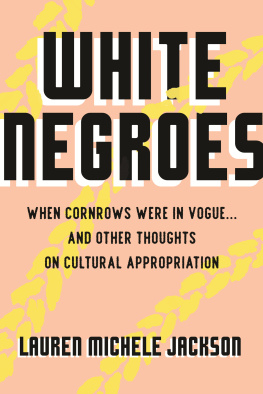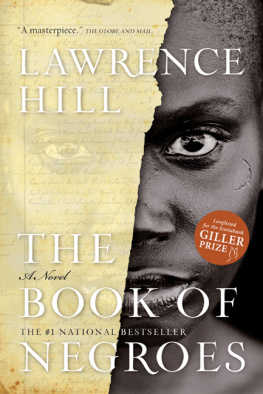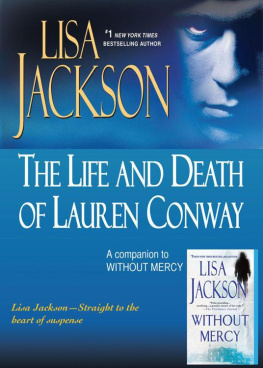Lauren Michele Jackson - White Negroes: When Cornrows Were in Vogue and Other Thoughts on Cultural Appropriation
Here you can read online Lauren Michele Jackson - White Negroes: When Cornrows Were in Vogue and Other Thoughts on Cultural Appropriation full text of the book (entire story) in english for free. Download pdf and epub, get meaning, cover and reviews about this ebook. year: 2019, genre: Art. Description of the work, (preface) as well as reviews are available. Best literature library LitArk.com created for fans of good reading and offers a wide selection of genres:
Romance novel
Science fiction
Adventure
Detective
Science
History
Home and family
Prose
Art
Politics
Computer
Non-fiction
Religion
Business
Children
Humor
Choose a favorite category and find really read worthwhile books. Enjoy immersion in the world of imagination, feel the emotions of the characters or learn something new for yourself, make an fascinating discovery.
- Book:White Negroes: When Cornrows Were in Vogue and Other Thoughts on Cultural Appropriation
- Author:
- Genre:
- Year:2019
- Rating:5 / 5
- Favourites:Add to favourites
- Your mark:
- 100
- 1
- 2
- 3
- 4
- 5
White Negroes: When Cornrows Were in Vogue and Other Thoughts on Cultural Appropriation: summary, description and annotation
We offer to read an annotation, description, summary or preface (depends on what the author of the book "White Negroes: When Cornrows Were in Vogue and Other Thoughts on Cultural Appropriation" wrote himself). If you haven't found the necessary information about the book — write in the comments, we will try to find it.
White Negroes: When Cornrows Were in Vogue and Other Thoughts on Cultural Appropriation — read online for free the complete book (whole text) full work
Below is the text of the book, divided by pages. System saving the place of the last page read, allows you to conveniently read the book "White Negroes: When Cornrows Were in Vogue and Other Thoughts on Cultural Appropriation" online for free, without having to search again every time where you left off. Put a bookmark, and you can go to the page where you finished reading at any time.
Font size:
Interval:
Bookmark:


To Mommy and Tom, who gave me language, with love
So there was a new breed of adventurers, urban adventurers who drifted out at night looking for action with a black mans code to fit their facts. The hipster had absorbed the existentialist synapses of the Negro, and for practical purposes could be considered a white Negro.
NORMAN MAILER , The White Negro:
Superficial Reflections on the Hipster
A reiteration of the obvious is never wasted on the oblivious.
PERCIVAL EVERETT , Erasure
Conscience, it has been said, makes cowards of us all.
A ppropriation gets a bad rap. The word, centuries old, denotes an act of transportsome item or motif or a bit of property changing hands. An artist might appropriate an ancient symbol in a painting or a government might appropriate monies through taxes to fund public education. Taking only the root of the word, the meaning seems clear. To make something appropriate for another context. In some circles, the word is still used this way. But colloquially? Not so much.
The debate over cultural appropriation rages on. It was not too many years ago that a certain former Disney star suited in unicorn pajamas rattled her waist in an online video that went viral, prompting America to find language and meaning for what exactly was happening, the language with which to encounter this white girl who so loved black dance.
Versions of this debate have risen up repeatedly. The practice of repurposing culture is as old as culture itself, and America has been making other cultures appropriate to its amusement and ambitions since the very beginning. Youve taken my blues and gone, Langston Hughes laments in the opening of his 1940 poem Note on Commercial Theatre.
I recall a similar anxiety emanating from the pop music takeover of Eminem. At the 2000 MTV Video Music Awards (VMAs), the rapper, sporting close-cut bleached-blond hair, entered the theater in a white wife beater (offensive, if not inaccurate) and loose gray sweatpants, trailed by dozens of white close-cut bleached-blond look-alikes. The performance was simple, yet clever and effective, and still memorable within the history of an awards show that only recently has failed to diagnose the culture. At the time, Eminem appeared to be the portent of hip-hops futureartists, critics, and other protectors of the genre worried about the next coming of Elvis, worried that Eminem might catalyze a transformation of rap similar to what long ago happened to rock and roll, and to jazz before that. They werent so wrong. Thirteen years later, the VMA for Best Hip-Hop Video was awarded to a white anti-hip-hop rap duo from Seattle named Macklemore and Ryan Lewis. Those same 2013 VMAs invited Robin Thicke and Miley Cyrus to jerk and jive to the riff of a song that would later pay court-ordered royalties to Marvin Gayes estate for borrowing without permission.
National dialogue on appropriation extends beyond the boundaries of popular music. From Halloween costumes to Cinco de Mayo parties to the Washington Redskins to decorative bindis and other music festival fashion, the new millennium and an avowedly more conscious generation of people is tasked with taking seriously all kinds of cultural masquerade. Yet the more popularand accusatorythe word appropriation has become, the fewer people seem willing to understand the meaning behind it. Where it briefly seemed obvious that dressing up as a person of another race to the point of stereotype is not okay, as I write this, the country is in the midst of forgiving and actively forgetting the surfaced photograph of a state governor costumed in either blackface or Klan robes. (The governor refuses to disclose which partygoer in the photo is he.) After years of being chastised for wearing sombreros and Native-like headdresses, white people feel indignant. They are paranoid that people of color see appropriation in everything.
Appropriation is everywhere, and is also inevitable. Appropriation, for better and worse, cannot stop. So long as peoples interact with other peoples, by choice or by force, cultures will intersect and mingle and graft onto each other. We call hip-hop a black thing and it is, indeed, a black thing, that also emerged in neighborhoods where black and brown people homegrown and from the South, from the islands, melded together to produce the music of their experiences in shared poverty and community. Early rap was itself an appropriation of another generations soundfunk, soul, discorepurposed for something different and new. Rap also revolutionized the lively form of appropriation known as sampling, a means of incorporating the past, the recent past, and other genres to make timeless music. I have all of Billy Joels shit in my iPod, said the legendary Grandmaster Caz in a 2007 interview with The idea that any artistic or cultural practice is closed off to outsiders at any point in time is ridiculous, especially in the age of the internet.
Most everyday acts of appropriation, done unconsciously, escape our notice: the word that works itself into your speech because your best friend sprinkles every other phrase with it and where they got it from they dont even know; a new style you have grown into without thought, without a specific icon in mind, by just going with the flow of fashion; some recipe from Pinterest or your favorite food blog that advertises itself as nothing more than chicken casserole, made with ingredients and techniques that dont, to you, recall any culture in particular; the yoga pose you sink into after a workout; the way you shimmy when your favorite song comes on. Said the eminent cultural theorist Homi K. Bhabha, in an Artforum roundtable on the subject, We can never quite control these acts and their signification. They exceed intention.
Which returns us to the contention at the heart of the matter: If appropriation is everywhere and everyone appropriates all the time, why does any of this matter?
The answer, in a word: power.
Leading discussions about appropriation have been limited to debates about freedom and choice, when everyone should be talking about power. The act of cultural transport is not in itself an ethical dilemma. Appropriation can often be a means of social and political repair. The foil to assimilation for so many people America puts in danger is the appropriation of normative values with a twist. Examples include cakewalking on the old plantation, extravagant realness in the ballroom, poetic verse mastered and improved upon by the descendants of those beaten or worse for the crime of literacy. Ask any book of poems by Paul Laurence Dunbar or Gwendolyn Brooks or Terrance Hayes how insurgently wonderful literature can be when black poets experiment with the forms at their disposal, even the ones that come from Europe. When the oppressed appropriate from the powerful, it can be very special indeed.
And yet.
When the powerful appropriate from the oppressed, societys imbalances are exacerbated and inequalities prolonged. In America, white people hoard power like Hungry Hungry Hippos. One cannot understand American capitalism either historically or in its current configuration, says political scientist Michael Dawson, without understanding the profound role that the racial order has had in shaping capitalism in the United States, key institutions such as markets, and the state itself. In the history of problematic appropriation in America, we could start with the land and crops and cuisine commandeered from Native peoples along with the mass expropriation of the labor of the enslaved. The tradition lives on. The things black people make with their hands and minds, for pay and for the hell of it, are exploited by companies and individuals who offer next to nothing in return. White people are not penalized for flaunting black culturethey are rewarded for doing so, financially, artistically, socially, and intellectually. For a white person, seeing, citing, and compensating black people, however, has no such reward and may actually prove risky. After all, says another eminent critic, the cultural theorist Lauren Berlant, the American Dream does not allow a lot of time for curiosity about people it is not convenient or productive to have curiosity about.
Font size:
Interval:
Bookmark:
Similar books «White Negroes: When Cornrows Were in Vogue and Other Thoughts on Cultural Appropriation»
Look at similar books to White Negroes: When Cornrows Were in Vogue and Other Thoughts on Cultural Appropriation. We have selected literature similar in name and meaning in the hope of providing readers with more options to find new, interesting, not yet read works.
Discussion, reviews of the book White Negroes: When Cornrows Were in Vogue and Other Thoughts on Cultural Appropriation and just readers' own opinions. Leave your comments, write what you think about the work, its meaning or the main characters. Specify what exactly you liked and what you didn't like, and why you think so.

